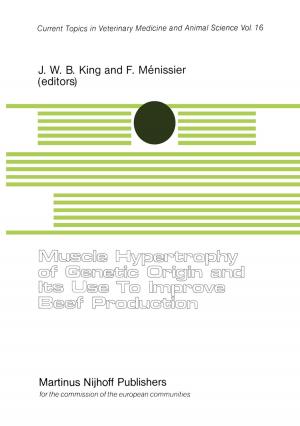Machine Discovery
Reprinted from Foundations of Science Volume 1, No. 2, 1995/96
Nonfiction, Computers, Advanced Computing, Artificial Intelligence, Health & Well Being, Psychology, Cognitive Psychology| Author: | ISBN: | 9789401721240 | |
| Publisher: | Springer Netherlands | Publication: | March 9, 2013 |
| Imprint: | Springer | Language: | English |
| Author: | |
| ISBN: | 9789401721240 |
| Publisher: | Springer Netherlands |
| Publication: | March 9, 2013 |
| Imprint: | Springer |
| Language: | English |
Human and machine discovery are gradual problem-solving processes of searching large problem spaces for incompletely defined goal objects. Research on problem solving has usually focused on searching an `instance space' (empirical exploration) and a `hypothesis space' (generation of theories). In scientific discovery, searching must often extend to other spaces as well: spaces of possible problems, of new or improved scientific instruments, of new problem representations, of new concepts, and others. This book focuses especially on the processes for finding new problem representations and new concepts, which are relatively new domains for research on discovery.
Scientific discovery has usually been studied as an activity of individual investigators, but these individuals are positioned in a larger social structure of science, being linked by the `blackboard' of open publication (as well as by direct collaboration). Even while an investigator is working alone, the process is strongly influenced by knowledge and skills stored in memory as a result of previous social interactions. In this sense, all research on discovery, including the investigations on individual processes discussed in this book, is social psychology, or even sociology.
Human and machine discovery are gradual problem-solving processes of searching large problem spaces for incompletely defined goal objects. Research on problem solving has usually focused on searching an `instance space' (empirical exploration) and a `hypothesis space' (generation of theories). In scientific discovery, searching must often extend to other spaces as well: spaces of possible problems, of new or improved scientific instruments, of new problem representations, of new concepts, and others. This book focuses especially on the processes for finding new problem representations and new concepts, which are relatively new domains for research on discovery.
Scientific discovery has usually been studied as an activity of individual investigators, but these individuals are positioned in a larger social structure of science, being linked by the `blackboard' of open publication (as well as by direct collaboration). Even while an investigator is working alone, the process is strongly influenced by knowledge and skills stored in memory as a result of previous social interactions. In this sense, all research on discovery, including the investigations on individual processes discussed in this book, is social psychology, or even sociology.















